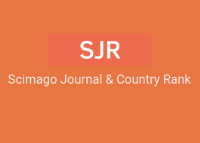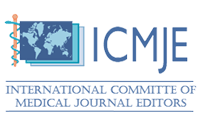СОЦИАЛЬНАЯ УСТОЙЧИВОСТЬ ТЕРРИТОРИЙ АЗИАТСКОЙ РОССИИ
Аннотация
Введение. В регионах Азиатской России отмечаются проблемы и противоречия в развитии социальной сферы, дифференциация городских и сельских поселений по инфраструктурной обеспеченности, транспортной доступности. Достижение социальной устойчивости территорий Азиатской России является важнейшим условием долгосрочного бескризисного развития этих территорий, поддержания национальной безопасности и обеспечения национальных интересов страны.
Цель исследования состояла в разработке и апробации методики оценки социальной устойчивости территорий, которая одновременно способна представить целостное видение ситуации, а с другой – детализировать ключевые проблемы в части их пространственной локализации.
Материалы и методы. Материалом для статьи послужили статистические данные Федеральной службы государственной статистики по 27 территориям Азиатской России. Авторская методика основана на методе расчета интегральных индексов социальной устойчивости и предполагает ранжирование территорий по доступности услуг социальной инфраструктуры, социальной безопасности и качеству социальной среды.
Результаты. Проведена дифференциация регионов по интегральному индексу социальной устойчивости, покупательной способности заработной платы и ВРП на душу населения. Результаты исследования показали, что в целом для регионов Северной Азии в качестве приоритетов развития необходимо определить: здравоохранение, рынок труда и безопасность социальной среды, материальное благосостояние и демографическое развитие.
Основные выводы и рекомендации могут быть использованы различными органами законодательной и исполнительной власти при совершенствовании системы комплексной оценки социальной устойчивости и при разработке программ социально-экономического развития регионов Азиатской России.
Скачивания
Литература
Список литературы
Акьюлов Р. И. Влияние социально-экономического неравенства на социальную устойчивость России // Вопросы политологии и социологии. 2015. № 3. С. 60-63.
Брундтланд Г.Х. Наше общее будущее // Доклад Всемирной комиссии по вопросам окружающей среды и развития [Электронный ресурс]https://www.un.org/ru/ga/pdf/brundtland.pdf (дата обращения: 16.04.2022)
Гайфуллин А. Ю. Методический подход к оценке социальной устойчивости территориальных образований // Известия Уфимского научного центра РАН. 2016. № 1. С. 104-109.
Гущина И. А., Кондратович Д.Л. Методология и практика оценки социальной устойчивости в Арктическом регионе // Экономика и управление: проблемы, решения. 2018. Т. 3. № 12. С. 110-120.
Дагбаева С. Д.-Н. Территориальные проблемы развития социальной инфраструктуры // Фундаментальные исследования. 2019. № 4. С. 38-42.
Добровольный национальный обзор хода осуществления Повестки дня в области устойчивого развития на период до 2030 года. // Аналитический центр при Правительстве Российской Федерации 2020 [Электронный ресурс] https://sustainabledevelopment.un.org/content/documents/26420VNR_2020_Russia_Report_Russian.pdf (дата обращения: 02.05.2022).
Иванова С. Н. Общественное здоровье и развитие здравоохранения в регионах России // Siberian Journal of Life Sciences and Agriculture. 2021. Т. 13. № 2. С. 47-63. http://doi.org/10.12731/2658-6649-2021-13-2-47-63
Корчак Е. А. Динамика социальной устойчивости и уровень жизни населения регионов Севера России // ЭКО. 2016. № 3(501). С. 80-95.
Мигунова Ю. В. Социальная устойчивость в сфере здравоохранения: критерии, риски и угрозы // Известия Уфимского науч. центра РАН. 2016. № 3. С. 90-96.
Пандемии Будущего. Стратегии готовности. Ключевые выводы дискуссии. Петербургский международный экономический форум-2021 [Электронный ресурс] https://roscongress.org/sessions/spief-2021-pandemii-budushchego-strategii-gotovnosti/discussion/ (дата обращения: 16.04.2022)
Российский статистический ежегодник. 2020: Стат.сб. / Росстат. 2020. 700 с.
Рябова Л. А. Социальная устойчивость развития муниципальных образований Российской Арктики: теория и практика // Север и рынок: формирование экономического порядка. 2013. № 6(37). С. 4-14.
Садыков Р. М. Благосостояние населения как фактор социальной устойчивости территорий // Современные проблемы науки и образования. 2015. № 2-1. С. 624.
Садыков Р. М. Жилищная обеспеченность населения как фактор социальной устойчивости территорий // Молодой ученый. 2016. № 14(118). С. 612-615.
Скальная М. М. Доходы сельского населения как фактор социальной устойчивости сельских территорий // АПК: Экономика, управление. 2018. № 1. С. 62-71.
Цели устойчивого развития // Бюллетень Счетной палаты Российской Федерации, 2020, № 6 (271) 160 с. [Электронный ресурс] https://ach.gov.ru/upload/iblock/b06/b065c140de24fbc32271bb2267f621ec.pdf (дата обр.: 02.05.2022).
Atkinson G., Dietz S., Neumayer E. Handbook of Sustainable Development: Second Edition; Edward Elgar Publishing: Cheltenham, UK, 2014.
Bela B., Rasnaca L. Social Sustainability and Social Security of Territories: Methodology of Analysis and Relevance for Development // Proceedings of the 2015 International Conference: Economic science for rural development. 2015, no. 38, pp. 71-80.
Bhatti M., Dixon A. Special focus: housing, environment and sustainability // Housing Studies. 2003, no. 18 (4), pp. 501–504.
Boschmann E., Kwan M. Toward Socially Sustainable Urban Transportation: Progress and Potentials // International Journal of Sustainable Transportation. 2008, vol. 2, issue 3, pp. 138-157. https://doi.org/10.1080/15568310701517265
Boyer R., Peterson N., Arora P., Caldwell K. Five Approaches to Social Sustainability and an Integrated Way Forward // Sustainability. 2016, no. 8, 878. https://doi.org/10.3390/su8090878
Carpenter J. ‘Social Mix’ as ‘Sustainability Fix’? Exploring Social Sustainability in the French Suburbs // Urban Planning. 2018, vol. 3, issue 4, pp. 29–37. https://doi.org/10.17645/up.v3i4.1675
Cirella G., Goncharuk A., Storto C. Exploring Social Sustainability and Economic Practices: Multi-Journal Compendium // Sustainability. 2020, no. 12, 1718. https://doi.org/10.3390/su12051718
Maghsoudi T.; Cascon-Pereira R., Lara A. The Role of Collaborative Healthcare in Improving Social Sustainability: A Conceptual Framework // Sustainability. 2020, no. 12, 3195. https://doi.org/10.3390/su12083195
Mella P, Gazzola P. Sustainability and quality of life: the development model // 18th International Conference on Enterprise and the Competitive Environment. 2015, pp. 542-551.
Stepanova N., Gritsenko D., Gavrilyeva T. Belokur A. Sustainable Development in Sparsely Populated Territories: Case of the Russian Arctic and Far East // Sustainability. 2020, no. 12, p. 2367. https://doi.org/10.3390/su12062367
Vallance S., Perkins H.C., Dixon J.E. What is social sustainability? A clarification of concepts // Geoforum. 2011, no. 42, pp. 342–348. https://doi.org/10.1016/j.geoforum.2011.01.002
References
Ak’yulov R. I. Vliyanie sotsial’no-ekonomicheskogo neravenstva na sotsial’nuyu ustoychivost’ Rossii [The Impact of Socio-Economic Inequality on the Social Stability of Russia]. Voprosy politologii i sotsiologii [Questions of political science and sociology], 2015, no. 3, pp. 60-63.
Brundtland G. Kh. Nashe obshchee budushchee [Our Common Future]. Doklad Vsemirnoy komissii po voprosam okruzhayushchey sredy i razvitiya [Report of the World Commission on Environment and Development]. https://sustainabledevelopment.un.org/content/documents/5987our-common-future.pdf
Gayfullin A. Yu. Metodicheskiy podkhod k otsenke sotsial’noy ustoychivosti territorial’nykh obrazovaniy [Methodological approach to assessing the social sustainability of territorial entities]. Izvestiya Ufimskogo nauchnogo tsentra RAN [Proceedings of the Ufa Scientific Center of the Russian Academy of Sciences], 2016, no. 1, pp. 104-109.
Gushchina I. A., Kondratovich D.L. Metodologiya i praktika otsenki sotsial’noy ustoychivosti v Arkticheskom regione [Methodology and practice for assessing social sustainability in the Arctic region]. Ekonomika i upravlenie: problemy, resheniya [Economics and Management: Problems, Solutions], 2018, vol. 3, no. 12, pp. 110-120.
Dagbaeva S. D.-N. Territorial’nye problemy razvitiya sotsial’noy infrastruktury [Territorial problems of social infrastructure development]. Fundamental’nye issledovaniya [Basic Research], 2019, no. № 4, pp. 38-42.
Dobrovol’nyy natsional’nyy obzor khoda osushchestvleniya Povestki dnya v oblasti ustoychivogo razvitiya na period do 2030 goda [Voluntary National Review of the Implementation of the 2030 Agenda for Sustainable Development]. Analiticheskiy tsentr pri Pravitel’stve Rossiyskoy Federatsii 2020 [Analytical Center under the Government of the Russian Federation 2020]. https://sustainabledevelopment.un.org/content/documents/26420VNR_2020_Russia_Report_Russian.pdf (accessed: 05/05/2022).
Ivanova S.N. Obshchestvennoe zdorov’e i razvitie zdravookhraneniya v regionakh Rossii [Public health and healthcare development in the regions of Russia]. Siberian Journal of Life Sciences and Agriculture [Siberian Journal of Life Sciences and Agriculture], 2021, vol. 13, no. 2, pp. 47-63. http://doi.org/10.12731/2658-6649-2021-13-2-47-63
Korchak E. A. Dinamika sotsial’noy ustoychivosti i uroven’ zhizni naseleniya regionov Severa Rossii [Dynamics of social stability and standard of living of the population of the regions of the North of Russia]. EKO [ECO], 2016, no. 3(501), pp. 80-95.
Migunova Yu. V. Sotsial’naya ustoychivost’ v sfere zdravookhraneniya: kriterii, riski i ugrozy [Social sustainability in healthcare: criteria, risks and threats]. Izvestiya Ufimskogo nauchnogo tsentra RAN [Proceedings of the Ufa Scientific Center of the Russian Academy of Sciences], 2016, no. 3, pp. 90-96.
Pandemii Budushchego. Strategii gotovnosti. Klyuchevye vyvody diskussii. Peterburgskiy mezhdunarodnyy ekonomicheskiy forum-2021 [Pandemics of the Future. readiness strategies. Key conclusions of the discussion. St. Petersburg International Economic Forum 2021]. https://roscongress.org/sessions/spief-2021-pandemii-budushchego-strategii-gotovnosti/discussion/ (accessed: 16.04.2022)
Rossiyskiy statisticheskiy ezhegodnik [Russian Statistical Yearbook]. 2020, pp. 58-63.
Ryabova L. A. Sotsial’naya ustoychivost’ razvitiya munitsipal’nykh obrazovaniy Rossiyskoy Arktiki: teoriya i praktika [Social sustainability of the development of municipalities in the Russian Arctic: theory and practice]. Sever i rynok: formirovanie ekonomicheskogo poryadka [The North and the Market: Shaping the Economic Order], 2013, no. 6(37), pp. 4-14.
Sadykov R. M. Blagosostoyanie naseleniya kak factor sotsial’noy ustoychivosti territoriy [Welfare of the population as a factor of social stability of territories]. Sovremennye problem nauki i obrazovaniya [Modern problems of science and education], 2015, no. 2-1, p. 624.
Sadykov R. M. Zhilishchnaya obespechennost’ naseleniya kak factor sotsial’noy ustoychivosti territoriy [Housing provision of the population as a factor of social sustainability of territories]. Molodoy uchenyy [Young scientist], 2016, no. 14(118), pp. 612-615.
Skal’naya M. M. Dokhody sel’skogo naseleniya kak factor sotsial’noy ustoychivosti sel’skikh territoriy [Income of the rural population as a factor in the social sustainability of rural areas]. APK: Ekonomika, upravlenie [Agro-industrial complex: Economics, management], 2018, no. 1, pp. 62-71.
Tseli ustoychivogo razvitiya [Sustainable Development Goals]. Byulleten’ Schetnoy palaty Rossiyskoy Federatsii [Bulletin of the Accounts Chamber of the Russian Federation], 2020, no. 6 (271), 160 p. [Electronic resource] https://ach.gov.ru/upload/iblock/b06/b065c140de24fbc32271bb2267f621ec.pdf (accessed: 05/05/2022).
Atkinson G., Dietz S., Neumayer E. Handbook of Sustainable Development: Second Edition; Edward Elgar Publishing: Cheltenham, UK, 2014.
Bela B., Rasnaca L. Social Sustainability and Social Security of Territories: Methodology of Analysis and Relevance for Development. Proceedings of the 2015 International Conference: Economic science for rural development, 2015, no. 38, pp. 71-80.
Bhatti M., Dixon A. Special focus: housing, environment and sustainability. Housing Studies, 2003, no. 18 (4), pp. 501–504.
Boschmann E., Kwan M. Toward Socially Sustainable Urban Transportation: Progress and Potentials. International Journal of Sustainable Transportation, 2008, vol. 2, issue 3, pp. 138-157. https://doi.org/10.1080/15568310701517265
Boyer R., Peterson N., Arora P., Caldwell K. Five Approaches to Social Sustainability and an Integrated Way Forward. Sustainability, 2016, no. 8, 878. https://doi.org/10.3390/su8090878
Carpenter J. ‘Social Mix’ as ‘Sustainability Fix’? Exploring Social Sustainability in the French Suburbs. Urban Planning, 2018, vol. 3, issue 4, pp. 29–37. https://doi.org/10.17645/up.v3i4.1675
Cirella G., Goncharuk A., Storto C. Exploring Social Sustainability and Economic Practices: Multi-Journal Compendium. Sustainability, 2020, no. 12, 1718. https://doi.org/10.3390/su12051718
Maghsoudi T.; Cascon-Pereira R., Lara A. The Role of Collaborative Healthcare in Improving Social Sustainability: A Conceptual Framework. Sustainability, 2020, no. 12, 3195. https://doi.org/10.3390/su12083195
Mella P, Gazzola P. Sustainability and quality of life: the development model. 18th International Conference on Enterprise and the Competitive Environment, 2015, pp. 542-551.
Stepanova N., Gritsenko D., Gavrilyeva T. Belokur A. Sustainable Development in Sparsely Populated Territories: Case of the Russian Arctic and Far East. Sustainability, 2020, no. 12, p. 2367. https://doi.org/10.3390/su12062367
Vallance S., Perkins H.C., Dixon J.E. What is social sustainability? A clarification of concepts. Geoforum, 2011, no. 42, pp. 342–348. https://doi.org/10.1016/j.geoforum.2011.01.002
Просмотров аннотации: 363
Copyright (c) 2023 Sembrika N. Ivanova, Arnold K. Tulohonov

Это произведение доступно по лицензии Creative Commons «Attribution-NonCommercial-NoDerivatives» («Атрибуция — Некоммерческое использование — Без производных произведений») 4.0 Всемирная.

























































